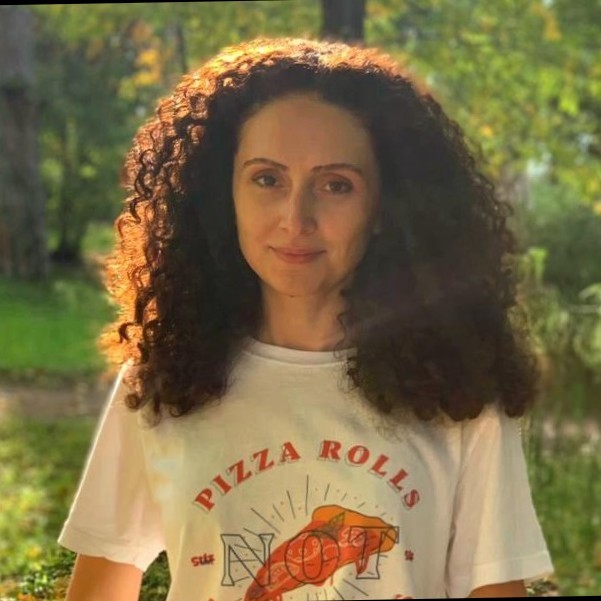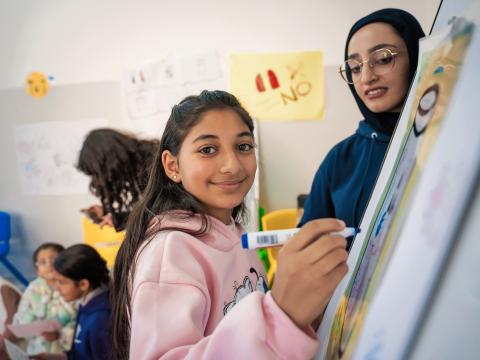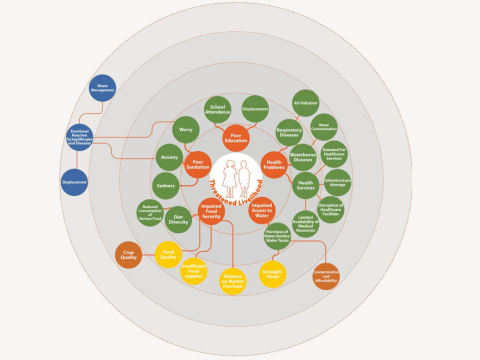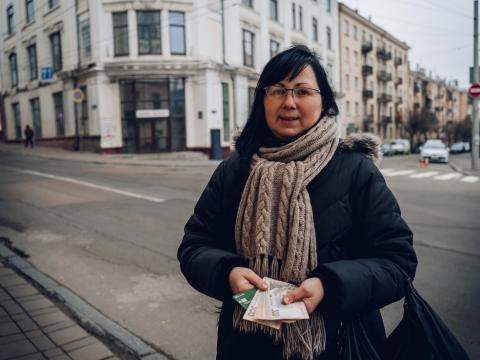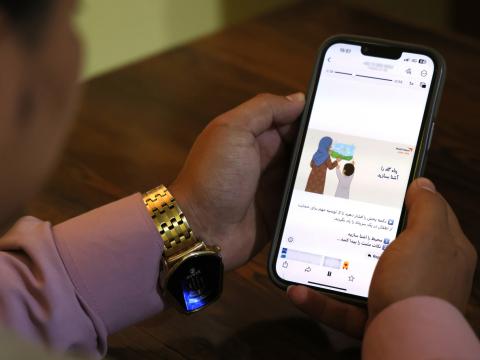
Innovative Chatbot Supports Parents in Times of Crisis
Ghida and Kate, impact and strategy experts, talk about a digital breakthrough in humanitarian work, the Parenting in Crisis Chatbot, which offers evidence-based mental health and parenting support and why it's important to prioritise dignity, self-care and nurturing relationships in the hardest to reach places.
20 November 2025
Humanitarian work often demands hard choices – as resources are scarce, we choose to prioritise physical needs, so mental and emotional support end up as a ’nice to have’. While across the Middle East and Eastern Europe, millions of parents are raising children amid war, displacement, and daily uncertainty, parenting support should not be a luxury. This World Children’s Day, World Vision highlights the Parenting in Crisis Chatbot, a digital innovation designed to nurture care and connection between parents and children.
Co-developed by Parenting for Lifelong Health (PLH) with families living in humanitarian crisis situations the Parenting in Crisis Chatbot demonstrates how Mental Health and Psychosocial Support (MHPSS) and Child Protection can be accessible in the hardest to reach places, at a minimal cost. It offers evidence-based support for parents using any messaging app, such as WhatsApp, Viber, and Telegram.
The chatbot uses text, audio, and short videos to deliver 10 evidence-based and practical messages designed to support caregiver well-being and strengthen positive parenting during stressful times. Caregivers are supported in managing their own stress, strengthening relationships with children through age-appropriate and candid communication and quality time, and protecting children from various threats and stressors, even in the most difficult times.
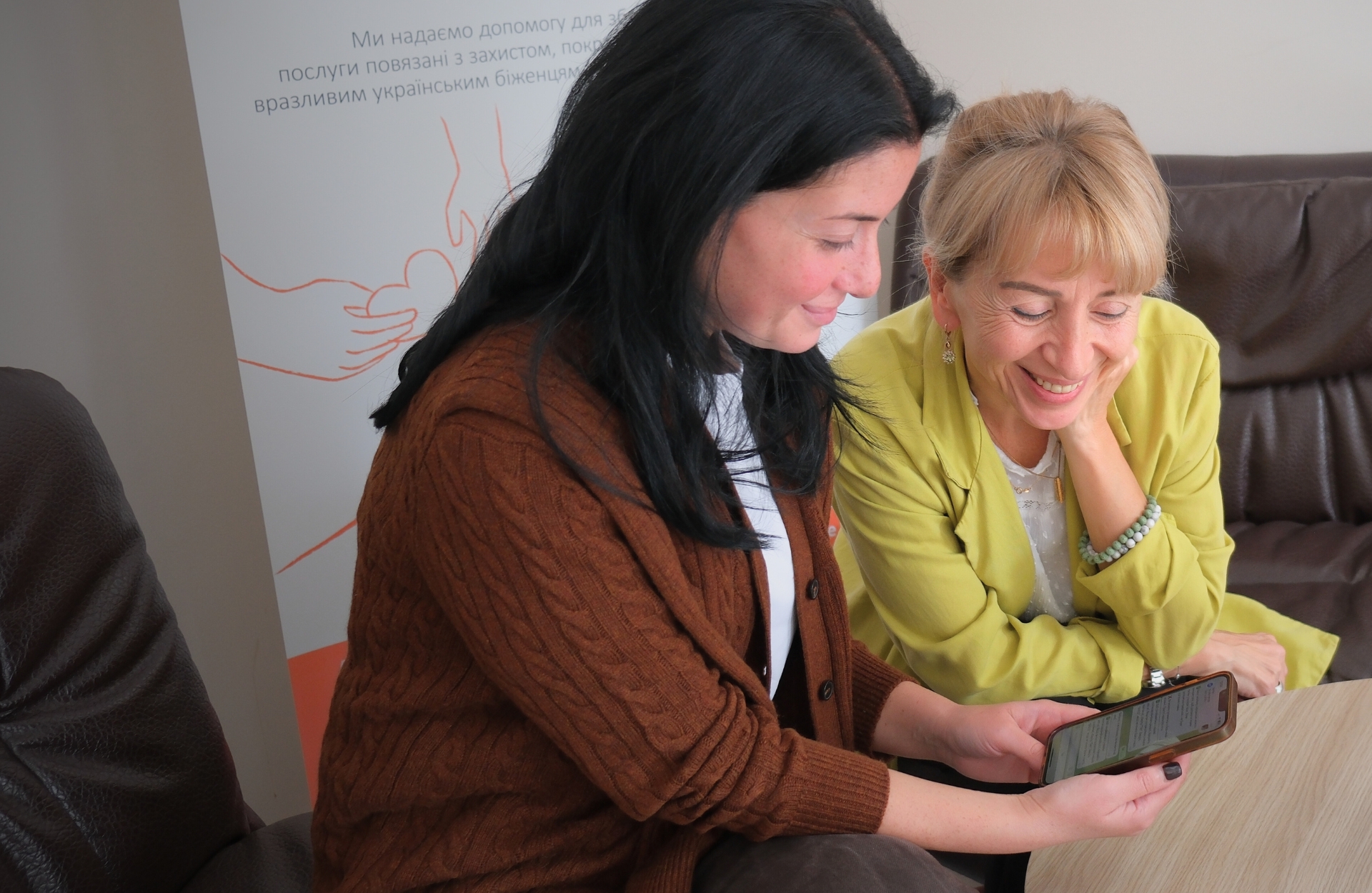
Tailored to local needs
As part of this ongoing pilot, by the end of 2025, we hope to reach 7,000 caregivers across Georgia, Romania, Ukraine, and Afghanistan, bringing psychosocial support and child protection directly to parents’ fingertips.
Each adaptation reflects its local realities and language:
- Ukraine and Georgia’s Батьківська опора (Batkivska Opora – Parental Support) is intended for internally displaced and host Ukrainian families inside Ukraine, and Ukrainian refugee parents in Georgia.
- Afghanistan’s نور والدین (Parents’ Light) reaches families recovering from the 2023 earthquake.
- Romania’s Busola Părintelui (Parent’s Compass) engages rural families across Romania.
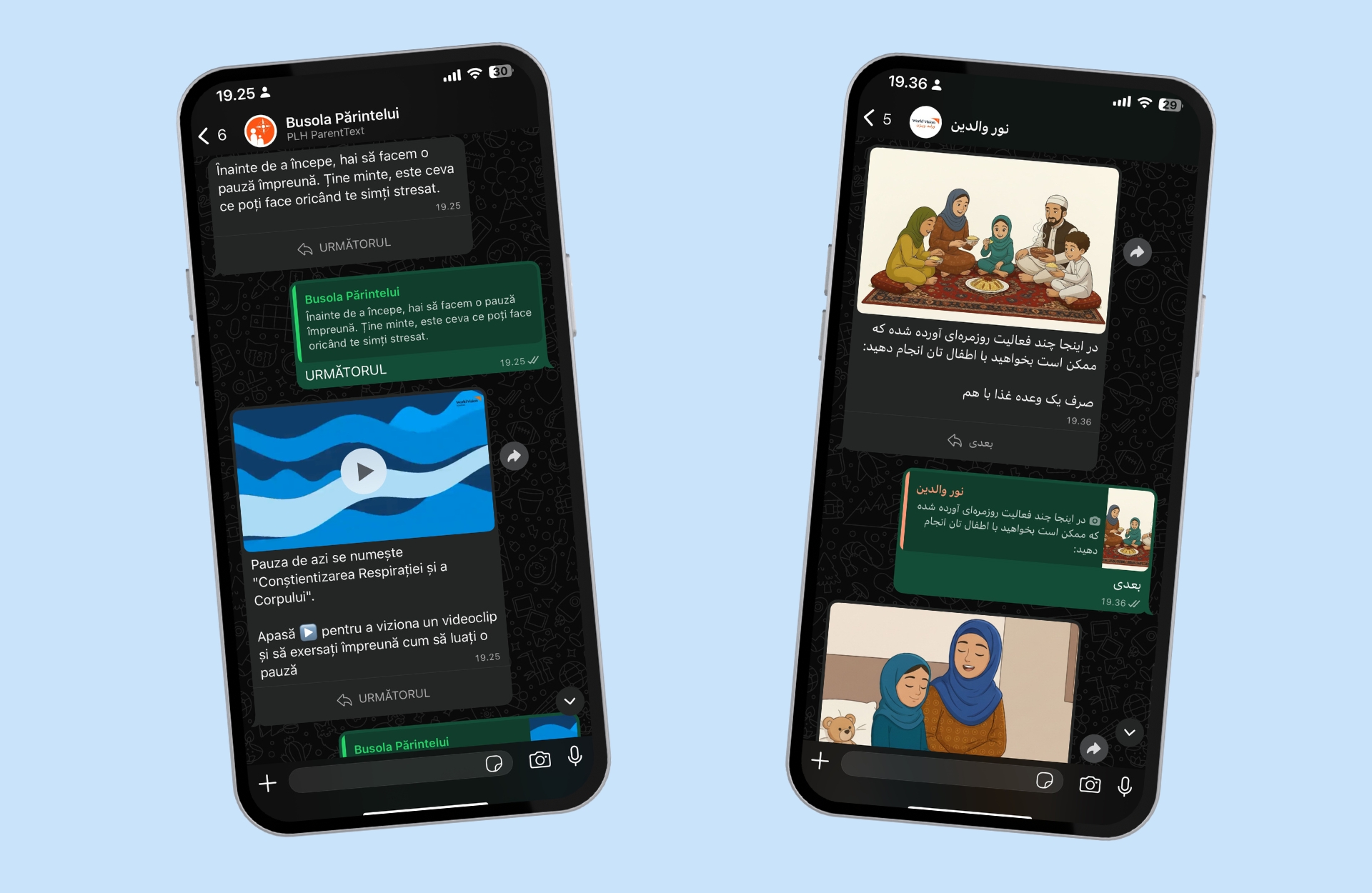
Innovation without compromising integrity
Digital innovation in humanitarian work is full of challenges and the Parenting in Crisis Chatbot is no exception. We have to believe in it first, before offering it to vulnerable parents. However, unlike many digital tools, the Parenting in Crisis Chatbot is fully human-curated and grounded within a strong protective framework, demonstrating that innovation can advance without compromising integrity. To further build confidence and trust with parents using the chatbot, our teams in each country are prepared with detailed and conclusive information to answer any possible question, prioritising accountability and transparency.
Although the piloting phase is only just beginning, our field teams involved in developing the chatbot are already witnessing its potential to support families.
“At first, working on the chatbot felt like stepping into the unknown — new tools, new processes, and plenty of uncertainty. But as we moved forward, my excitement grew. Seeing how this tool can reach parents in rural areas, offering them comfort, guidance, and practical advice when they need it most, has been truly rewarding. I believe it can make a real difference for families facing difficult times.” said Ilona Chiriac, Child Protection Advisor, World Vision Romania.
The four sites (Ukraine, Georgia, Afghanistan, and Romania) include parallel studies to discover to what extent a digital parenting tool such as Parenting in Crisis Chatbot can reduce caregivers‘ stress, enhance parent–child communication and connection, and if successful, what it would take to scale up this solution to reach potentially millions of parents in need.
“We are delighted to be partnering with World Vision to provide immediate mental health and caregiving support to families who are living in very difficult situations. Through technological innovation, this can be achieved at a much greater scale,” says Parenting for Lifelong Health CEO, Dr Jamie Lachman.
Join us on this learning journey and advocate for accessible parenting and MHPSS support for all parents everywhere.
Ghida Krisht is the Regional Evidence and Impact Advisor at World Vision Middle East and Eastern Europe, where she works to strengthen programme quality through evidence-based learning. She leads and supports regional research initiatives, drives the use of data for decision-making, and builds the capacity of field offices in MEAL and research to enhance impact across the region.
Ketevan (Kate) Kobaidze, PhD is the Strategy Advisor at World Vision Middle East and Eastern Europe. She brings 15 years of experience on humanitarian and development issues in the Middle East and Europe, with extensive expertise on mainstreaming child protection, gender equality, humanitarian protection and safeguarding, as well as strategy design and impact reporting.
